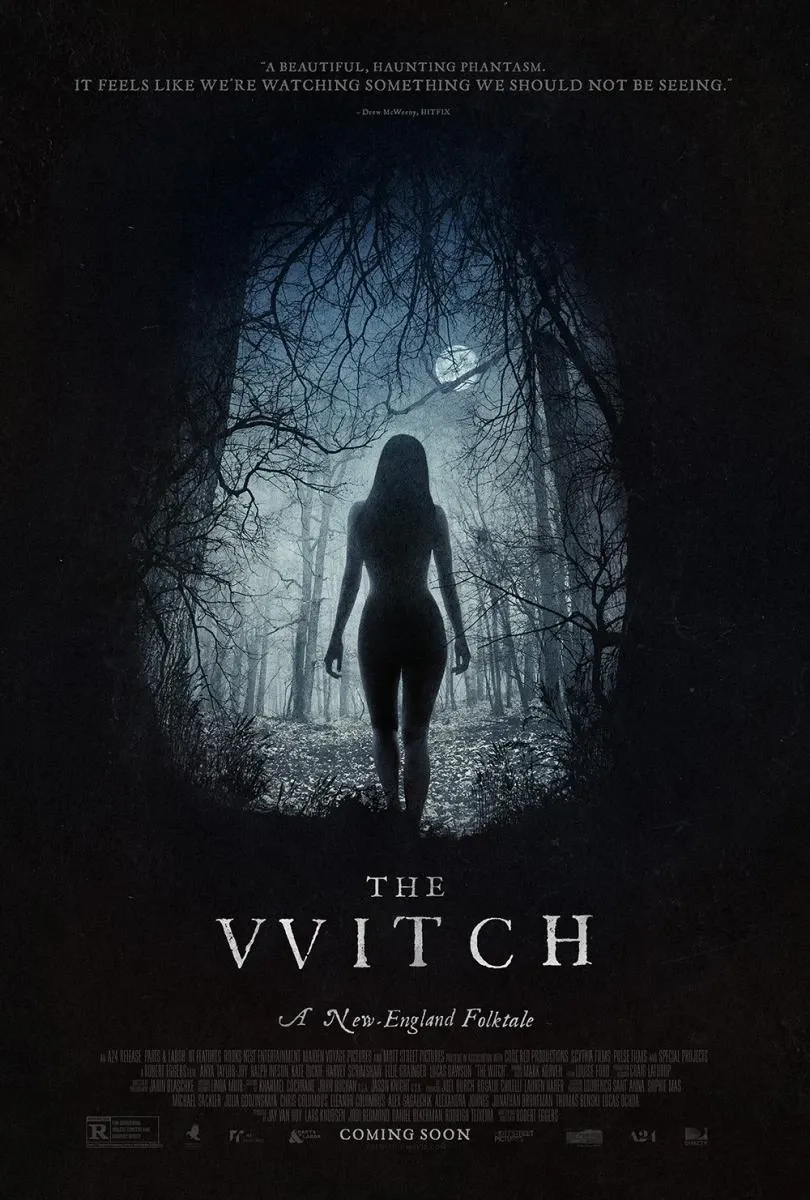The Witch

This week’s newsletter was originally about David Lynch. However, I received an interesting email from a reader last week regarding my previous post about Robert Eggers’ Nosferatu. With their permission I publish what they wrote to me so I can answer on my blog:
“I don’t get how you can criticize Nosferatu for emphasizing the occult, whilst still praising Eggers for his first film The Witch. That movie (like all of his work) is completely based on the occult. Your post doesn’t make sense to me, I think you’re being unfair to Nosferatu.”
They’re right of course. The Witch is a film that draws its extraordinary power from the occult. How come I don’t think it’s detrimental to its ability to terrify us, or makes the film feel nostalgic in the face of our more horrifying modern times—quite the opposite in fact!—unlike the director’s Nosferatu?
I thought it was a good opportunity to clarify what I meant and write about one of my favorite horror movies in recent memory. The answer is simple: it is the way in which Robert Eggers employs the occult in his first film that I believe is the source of its remarkable originality.
The film follows a Puritan family forced to fend in the wilderness on their own because of their prideful patriarch. The Puritanical values are the key source of oppression in the story, with the young characters shy and ashamed of their sexuality. The family lives under the shadow of the towering father figure, who is granted a reverberating boom of a voice by Ralph Ineson. “Doest thou disobey thy father?” he rhetorically asks his son. Isn’t this particularly relevant now, when Christian extremism in the US government is currently engaged in a full-scale blitzkrieg against anyone who does not look like them or share their view of the world?
By contrast, the witch is a feminist symbol in the film who finds freedom outside the so-called civilized norm. She breaks free from a patriarchal, religious power structure—breaks free even from her poverty—to take full joy in the pleasures of life, “live deliciously” as the goat puts it (I’ll never forget that moment sitting in the cinema and suddenly hearing Black Phillip’s voice, so soft and unsettling coming from the back speakers, whispering in our ears as it were). As such the forest in the film, shrouded in secrecy and darkness, far removed from the hypocrisy of civilization, is a gateway to liberation.
The occult employed as a villain doesn’t quite cut it for me anymore, but as a symbol for that part of human nature that is wild and unknowable, that is unashamed of itself and is as fierce as it is beautiful—now that is something to behold. What’s more Robert Eggers is not alone in this approach. Some of the greatest horror literature of our time wields the occult in this same way as well (I’ll write more about this in future posts). This style, arguably starting with John Milton’s portrayal of Satan in Paradise Lost, breathes into Fantasy a truly revolutionary character.
